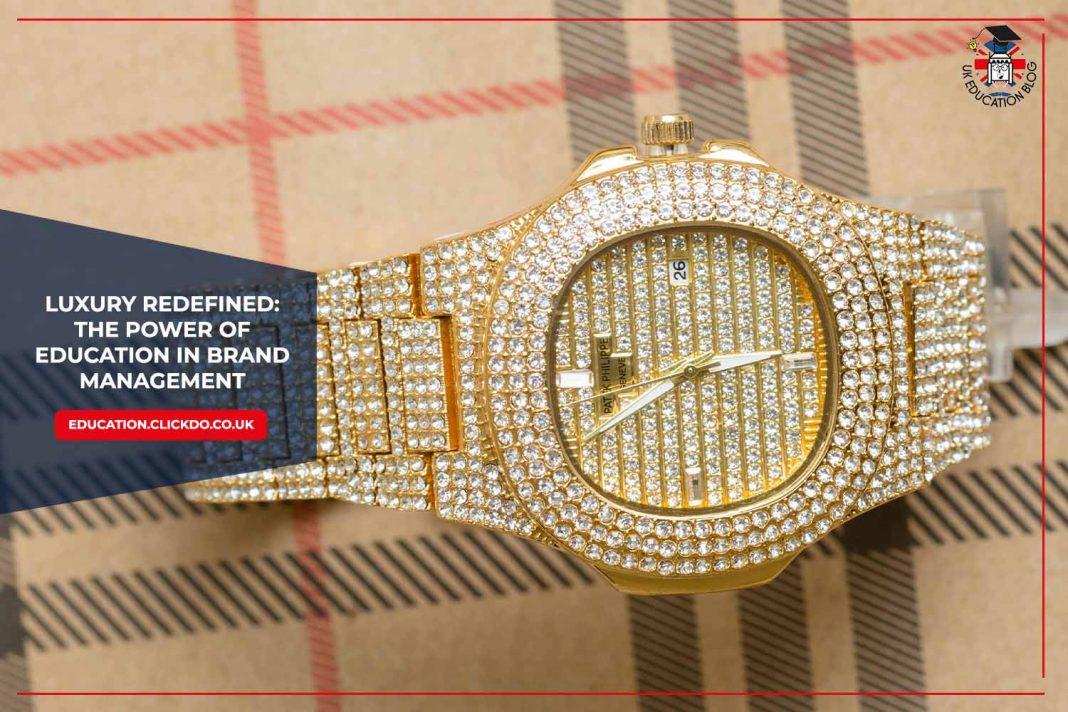Step into the realm where opulence meets wisdom and discover how education shapes the future of luxury brand management.
This exploration takes us on a historical voyage from the lavishness of ancient empires to the sophistication of today’s global brands, revealing the critical role of learning in crafting the narratives and strategies that define luxury.
We’ll uncover the intricate dance between tradition and innovation, and how understanding the luxury consumer psyche is pivotal.
Through the lens of higher education and specialized courses, we delve into the skills and insights necessary to navigate and lead in the luxurious world, highlighting the transformative power of education in the ever-evolving landscape of luxury brand management.
Foundations of Luxury Brand Education

Historical Context of Luxury
The historical context of luxury reveals a dynamic journey, where the concept of luxury has been continually redefined and enriched over time. Initially, luxury signified items crafted with exceptional skill and materials, accessible only to the elite. Ancient civilizations, like the Egyptians and Romans, celebrated luxury in the form of intricate jewellery and lavish garments, signalling wealth and status.
In the 19th and 20th centuries, the Industrial Revolution and subsequent rise of global capitalism transformed luxury into a more accessible concept, albeit still synonymous with high quality and exclusivity. Brands like Louis Vuitton, Chanel, and Rolls-Royce emerged, embodying luxury not only in the craftsmanship of their products but also in their heritage, storytelling, and ability to convey a certain lifestyle.
Today, luxury is multifaceted, incorporating elements of heritage, exclusivity, and cultural significance. It’s not just about the inherent value of the materials or the craftsmanship anymore but also the brand’s history, the storytelling, and the emotional connection it fosters with its consumers.
Understanding the Luxury Consumer Psyche
To excel in luxury brand management, you must tap into the luxury consumer psyche. Discerning what drives the purchasing decisions of affluent consumers is essential. Your strategy will be grounded on an intricate understanding of their desires, aspirations, and expectations.
The luxury market’s clientele seeks more than commodities—they are in pursuit of an exclusive experience and emotional resonance. Educational programs addressing consumer behaviour specifically in the context of luxury enable you to cater to these unique consumer needs with precision and creativity.
The Role of Higher Education in Luxury

Higher education plays a critical part in shaping future luxury brand leaders. Courses you’ll find in a luxury management master degree for example offer in-depth insights into the perfectly poised career opportunities in the luxury sector.
Universities and business schools provide structured learning and up-to-date practices through these targeted programs. Students not only learn the business side of operations but also acquire the finesse required to maintain the delicate balance between tradition and innovation in the luxury market.
Understanding the Brand Ecosystem
At the heart of brand management is a deep understanding of the brand ecosystem, which includes:
- Market Trends
- Consumer Psychology
- Competitive Dynamics
- Technological Advancements
Education in this field equips individuals with the analytical skills and knowledge to decipher this ecosystem, enabling them to make informed decisions that drive brand growth and sustainability.
Strategic Thinking and Innovation
Education fosters strategic thinking, a vital skill for brand managers. It encourages a holistic view of the business environment, prompting managers to consider long-term objectives and the broader impact of their decisions. This strategic approach is essential for steering brands through the challenges and opportunities of the market landscape, ensuring they remain relevant and competitive.
Furthermore, educational programmes often emphasise innovation, teaching individuals how to leverage creativity and critical thinking to rejuvenate brands and introduce groundbreaking products or services. This not only helps in maintaining consumer interest but also in establishing a brand as a leader in its industry.
Building Emotional Connections

A key aspect of brand management is the ability to build and maintain strong emotional connections with consumers. Education in areas like consumer behaviour, branding psychology, and communication strategies equips brand managers with the tools to craft compelling narratives that resonate with target audiences, fostering loyalty and advocacy.
Consumer Behaviour
Understanding consumer behaviour is fundamental to building emotional connections. Education in this area helps brand managers decipher the motivations, desires, and needs of their target audience. By studying consumer behaviour theories and models, managers can predict how consumers are likely to react to different brand messages and experiences, allowing for the creation of tailored strategies that resonate emotionally.
Branding Psychology
Branding psychology goes hand in hand with consumer behaviour, focusing on how brands can influence emotions and perceptions. Education in this field explores the psychological aspects of branding, such as how colours, shapes, words, and overall brand identity impact consumer psychology. Brand managers learn to use these elements to evoke specific feelings and associations, making the brand more memorable and emotionally significant to consumers.
Communication Strategies
Effective communication is pivotal in building and sustaining emotional connections with consumers. Education in communication strategies encompasses various channels and methods, including:
- Advertising
- Public Relations
- Social Media
- Direct Marketing
Brand managers learn how to craft messages that not only convey the brand’s value proposition but also speak to the hearts of consumers, creating a sense of belonging and loyalty.
Storytelling Techniques
A subset of communication, storytelling is a powerful tool for emotional engagement. Educational programmes often include modules on storytelling techniques, teaching brand managers how to narrate the brand’s journey, values, and experiences in a way that is compelling and relatable.
Good storytelling can turn a brand into a living entity with which consumers can form a personal and emotional bond.
Digital Engagement
In the digital age, building emotional connections often involves online platforms. Education in digital engagement strategies covers how to effectively use social media, websites, and other digital tools to create interactive and personalised experiences for consumers. Brand managers learn to analyse digital behaviour patterns, use data to personalise interactions, and create digital content that strengthens emotional ties.
Navigating the Digital Landscape
In today’s digital age, brand management extends far beyond traditional boundaries, making digital literacy an indispensable part of a brand manager’s education. Courses on digital marketing, e-commerce, and social media analytics are integral in training managers to navigate the online world effectively, ensuring that brands maintain a strong, positive presence across digital platforms.
Ethical and Sustainable Branding
Education also plays a crucial role in promoting ethical and sustainable branding practices. With increasing consumer awareness and demand for social responsibility, brand managers must be adept at integrating ethical considerations into their strategies.
Educational programmes that focus on sustainability, corporate social responsibility, and ethics prepare managers to lead brands towards practices that are not only profitable but also beneficial to society and the environment.
Lifelong Learning
Finally, education in brand management is not a one-time achievement but a continuous journey. The dynamic nature of the market necessitates lifelong learning, enabling brand managers to stay abreast of the latest trends, technologies, and methodologies. Continuous education ensures that professionals can adapt and thrive in the fast-paced world of branding, leading their brands to sustained success.
Conclusion
The power of education in brand management lies in its ability to mould individuals into strategic, innovative, and responsible leaders who can navigate the complexities of the market and steer brands towards a prosperous future. By investing in education, businesses empower their teams to build brands that not only withstand the test of time but also contribute positively to the world.
Author Profile

- Editor in Chief
- Blogger and Educator by Passion | Senior Online Media & PR Strategist at ClickDo Ltd. | Contributor to many Education, Business & Lifestyle Blogs in the United Kingdom & Germany | Summer Course Student at the London School of Journalism and Course Instructor at the SeekaHost University.
Latest entries
 Directory PostsOctober 29, 20257 Not-To-Miss UK Education Conferences in 2026
Directory PostsOctober 29, 20257 Not-To-Miss UK Education Conferences in 2026 Directory PostsOctober 16, 2025The 12 Best Online Tutoring Platforms in the UK
Directory PostsOctober 16, 2025The 12 Best Online Tutoring Platforms in the UK Directory PostsOctober 6, 2025Top 12 London Private Schools – Best Independent Schools Nearby
Directory PostsOctober 6, 2025Top 12 London Private Schools – Best Independent Schools Nearby careerSeptember 10, 20258 Top Online Future Career Courses To Know
careerSeptember 10, 20258 Top Online Future Career Courses To Know







